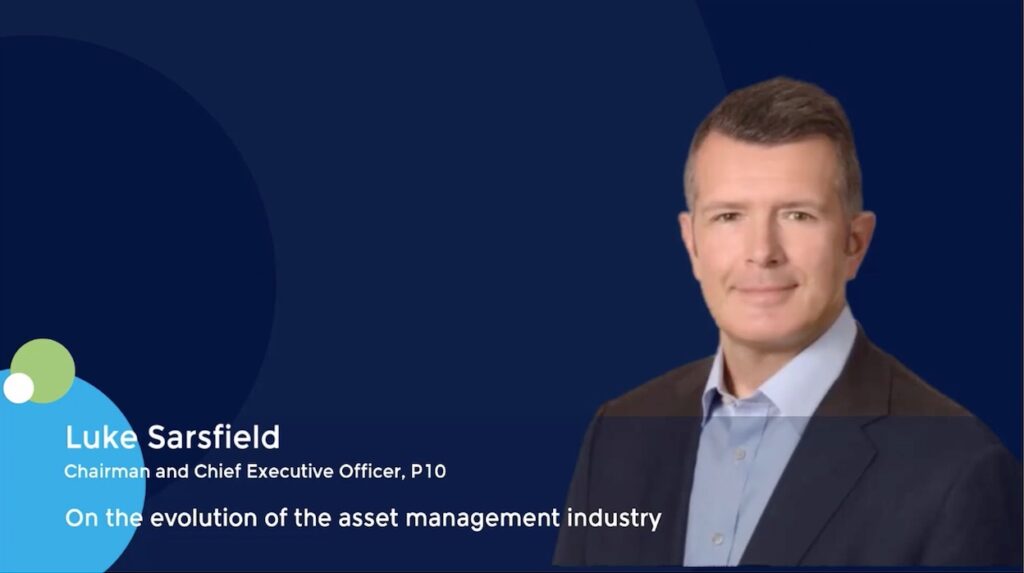Asia PE people: Ex-Jio president Vikas Choudhury reboots as growth-stage GP
- Early success in digital as entrepreneur led to recruitment by Reliance for Jio project
- Scaling amidst social digitalisation is both art and science, meaning instincts count
- Playbook Partners aims to take PE-style risk for VC-style returns in proven models
After five years as the president of India’s largest digital platforms company, Vikas Choudhury left without a clear plan. In hindsight, however, launching a private equity firm was always the likely endgame.
Choudhury is best known for leading Reliance Jio, the telecoms and e-commerce business of industrials and retail conglomerate Reliance Industries. Less known is that having started his career as an entrepreneur and angel investor in India’s nascent venture space, he personally backed 10 start-ups that went on to become unicorns.
With Jio behind him, those unicorn positions have been used to seed the portfolio of growth-stage investor Playbook Partners, extending a career that has effectively piggybacked the development of India’s digital economy since the turn of the century.
“I did not quit Jio to start this platform. I was wondering whether my next career move would be more personal or professional,” Choudhury said. “I decided to switch from the operational career, which I had spent 25 years on, to build an investing career, which I can spend the next 25 years on.”
The entrepreneur phase of his career followed the completion of an MBA at the University of Pittsburgh in 1999. Choudhury then helped establish India’s first angel network, Mumbai Angels, in 2006, and made his first fateful investment a year later. The target was an SMS-based advertising business called mKhoj. It now goes by the name InMobi.
He assisted as the start-up made an early pivot to a personalised advertising model, which eventually evolved to include supply chain optimisation. Institutional investors soon arrived – notably Kleiner Perkins and SoftBank – and InMobi became India’s first unicorn in 2011.
Since then, the company has re-headquartered in Singapore as part of a Southeast Asia expansion and brought in Jio as an investor. It plans to redomicile in India next year in preparation for a domestic IPO.
“Because I was already a tech CEO and player, I felt that we could bring strategic value-add in addition to capital. That was the thesis then,” said Choudhury. “Of course, I continued to operate full-time as a business leader. My day job was always running large businesses, which kept scaling.”
Joining Jio
By 2011, Choudhury was a senior executive for the India arm of Toronto-listed marketing services company Aimia, where he developed a joint venture with Tata Group and oversaw entries into markets such as Indonesia and Portugal.
Activities during this period also included leading an investment in US and India-based Fractal Analytics in 2014; the company went on to raise USD 660m from the likes of Apax Partners and TPG Capital. He was Aimia’s India CEO by 2017, when Reliance came knocking.
Jio had yet to launch. What the conglomerate wanted was for Choudhury to spin out his Aimia team to help realise a new-economy renaissance. First, Jio redrew the competitive landscape for mobile data by offering 4G at affordable prices. It is credited with effectively lifting India’s number of smart phone users from 50m to 500m, and had a 40% market share on Choudhury’s departure.
Then the company embarked on an effort to join up India’s consumer technology ecosystem, from e-commerce to entertainment. Jio was absorbed into Jio Platforms, a holding entity for all these assets, Jio Platforms went on to raise approximately USD 20bn in private funding from an array of blue-chip international investors.
“We were quite fortunate to get asked to run various aspects of the business at Jio. I was in that e-commerce space that they were quite interested in, and I was also a VC who understood how to create value in the digital economy,” he said.
Choudhury has described Jio during this period as one of three major pillars facilitating the digitalisation of the broader Indian economy, alongside the Aadhaar citizen ID system and, most significantly, the unified payments interface (UPI).
Meanwhile, he continued to invest via various family office entities, most significantly Pivot Ventures, a multi-family office touted as India’s largest investor of its kind in the tech and VC space with some 100 commitments since 2010.
Choudhury characterises the juxtaposition of high-volume VC investing and large-cap industrial leadership as a rare opportunity to understand the market in terms of both breadth and depth. Having blue-chip and ground-level viewpoints on how India’s digital transformation intersects with society has also cultivated a unique sense of pattern recognition.
“At the end of the day, when picking businesses or picking investments, there has to be a very healthy combination of your left brain and right brain. They can’t just work in isolation. The art really helps you think about the big picture,” he said.
It’s worth noting that Choudhury is an accomplished artist and award-winning photographer, specialising in Ansel Adams-inspired black-and-white landscapes that take on abstract qualities at a certain angle and lighting.
The art of scale
For the best examples of how this appreciation of the unquantifiable informs business and investment decisions, Choudhury harks back to his early instincts about the rise of digitalisation in India. He was one of the first investors in fashion start-up Myntra shortly after its inception in 2007, betting against the received wisdom on Indian culture.
“People said, ‘Nobody in this country will buy clothes online because we’re a touchy, feely country. We’re warm and social. We like to go to shops, touch the garments, and try them on,’” he explained. “I said, ‘I think India will also embrace e-commerce in this category.’ If you don’t use your art to peek into the future, you will not be able to make that bet.”
Myntra was acquired in 2014 by local e-commerce champion Flipkart, which was itself acquired by Walmart four year later. At the time, local media estimated that of the USD 21bn valuation Walmart paid for Flipkart, as much as USD 6.5bn was represented by Myntra.
Abstract, big-picture vision is no less a part of the late-stage investing to be done by Playbook Partners. Indeed, the firm has adopted “the art of scale” as its slogan, promising PE-low risk and VC-high returns.
Choudhury built out Playbook largely by tapping his personal networks. Each member of the investment team had to have significant operational experience and a background in scaling businesses, while bringing something unique to the table in terms of functional expertise.
“Investing and operating are very different disciplines. There are very few people in our country who are actually able to transcend that barrier and get exposure to both sides of that equation,” he said.
There are three operating partners: Manish Choksi (vice chairman, Asian Paints), Aakash Chaudhry (founder, Aakash Education) and Milan Sheth (EY, formerly Automation Anywhere). Their presence is held up as a PE-style differentiator from the prevailing VC-oriented growth capital space, where mentors and venture partners tend to have shallower resumes in scaling established businesses.
Unlike a PE firm, however, Playbook’s operating partners will advise across industries rather than be restricted to their specific domains of experience. The logic here is that much of the operational support will be about navigating digital disruption, a unifying theme across industries.
“I’ve been a tech CEO all my career, and it is invaluable to have someone on your side of the table who’s been there and done that and who you respect because it’s very lonely at the top,” Choudhury said.
“How do you look at capital allocation decisions? How do you look at building out your core management team? How do you look at partnerships for products or channels at scale? These are relationships that money can’t buy. Unless you’re a big PE guy, you can’t buy operating partners.”
Transformation time
Playbook will write cheques of USD 10m-USD 20m for Indian businesses that have achieved product-market fit and play broadly into the trend of digital transformation. Positive unit economics are a must: “Don’t aspire to be a unicorn – aspire to be a unit-corn,” Choudhury said.
Core themes include “distribution,” which is conceptualised as a consumption value chain spanning e-commerce and its enablers such as fintech and marketplace platforms, as well as back-end automation and supply chain services providers.
Health-tech, climate-tech, and software-as-a-service (SaaS) are also on the menu, especially where they are seen as an affordable option. This is where the infrastructural, mass-market learnings from Jio come into focus.
“India is actually a quite different market from the rest of the world in terms of how consumer behaviour plays itself out. It’s higher volume, lower value, always seeking value-for-money,” Choudhury said. “Demanding world-class products at India pricing – that’s one of the things that I was part of a team that built at Jio. Can we apply those principles to our thesis? Absolutely.”
A debut fund targeting USD 250m reached a USD 130m first close this month, largely from family offices representing India, Singapore, Europe, the US, and Middle East. This included all three operating partners, who contributed either via their family offices or their personal capacity.
Choudhury otherwise attributed the traction to the appeal of an operator-driven model, India’s socioeconomic tailwinds, and, perhaps most importantly, the value creation potential of a tech boom that still appears to be in its opening phases.
“Within 10 years, India tech has grown as a USD 500bn market cap on a USD 3.7trn economy, so 12%-15% of the economy. In the next five to 10 years, we’re looking at tech becoming USD 1trn on a USD 7trn economy, so 15%-20% going forward,” he said.
“Tech is a story we’ve seen play out in the West, and that’s coming to India. There are now 750m-plus people on smart phones.”













